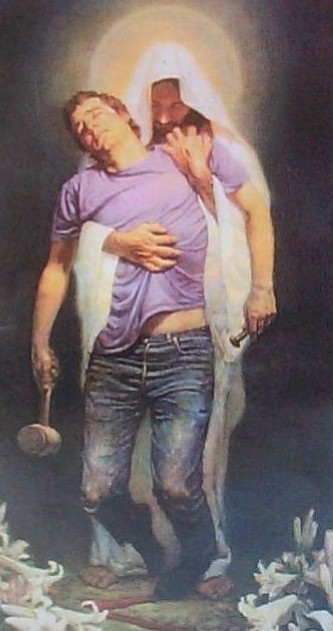As dear Mother Teresa once said, "I know God won't give me anything I can't handle, I just wish He didn't trust me so much."
How true those words ring to this very day. We know without a doubt that God has our best intentions in mind when hardships riddle our earthly lives. Yet, still, it always seems that there is just too much to handle. Too many places to drop the kids off, too many errands to run, too much work to get done in a single week, too many clients to satisfy, too many bosses to please, too many doctors appointments with no answers, too heavy a burden to bear, too much loss and pain in our hearts.
Our natural human reaction is to worry. How will I get through it all? How will I finish that report by Monday? How can I be in two places at once? How can I keep on going if I can't sleep at night? How can I keep living after my loved one has passed away? How, God, how?
Take heart. Breathe deeply. And pray. Immerse yourself in devotionals, church, fellowship, and His most precious Word. Dive into the deep everlasting waters of His love. Let go of the pain be it physical or emotional, but do not let it be spiritual. Drink deeply of His love and breathe. Just breathe.
Whether we like it, or not, life does go on, and worrying about it doesn't help. We do not need to fret or worry. As they say, worrying never added a day to anyone's life, but it has taken away. Jesus will take our burdens upon His shoulders, but we
have to let go. Cast your pain and hurt upon Him and trust in His perfect timing. This life that we live is to shape and mold us. This life is to learn how to become like Him.
Remember, He, too, has lived in this world. He knows the pain and anguish that it carries. He knows the pain of betrayal, the pain of loss, the pain of suffering. He knows the temptations, the hardships, and the sorrows. He was brutally murdered by the ones He came to save.
His flesh was pierced with stakes driven through the soft tendons of His hands and feet. His chest heaved as He fought with gravity to take each shuddering breath. His life force dripped from His hands and feet. His back was riddled with deep cuts before grating against the rough wood of the cross. And His most precious brow was defiled with a harsh crown of wretched thorns. The brow that deserved nothing less than a crown of unimaginable glory.
He knows. He knows. He knows. Be free from the worries and sorrows of this life, for His murder opened the gateway to God's glorious realm. And if we believe, and keep the faith, and abandon the pleasures of this world, we will one day join Him and worship the Three in One for all eternity.
Now why worry, when we can have faith and hope in that?

 *"Forgiven"
*"Forgiven"